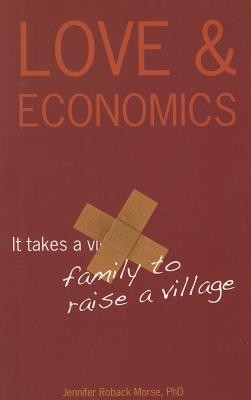
- We will send in 10–14 business days.
- Author: Jennifer Roback Morse
- Publisher: Ruth Institute Books
- ISBN-10: 0981605915
- ISBN-13: 9780981605913
- Format: 14 x 21.3 x 2.5 cm, softcover
- Language: English
- SAVE -10% with code: EXTRA
Reviews
Description
In Love and Economics: It Takes a Family to Raise a Village, economist Jennifer Roback Morse explains how the economy, which appears to a series of impersonal exchanges, is actually based upon love. Morse also shows how the political order--Hillary Clinton's "village"--depends upon the prior existence of loving families.
Drawing on the experience of neglected orphans, Morse argues that mothers create the basic attachments that lay the groundwork for the development of conscience. Furthermore, only the family can socialize children to use their freedom responsibly. No social program can take the place of mothers and fathers working together as a team. Unfortunately, stay-at-home mothers are often denigrated by feminists and always squeezed by the economy. Love and Economics defends the economic value of motherhood and outlines a better economic way forward.
EXTRA 10 % discount with code: EXTRA
The promotion ends in 20d.15:28:07
The discount code is valid when purchasing from 10 €. Discounts do not stack.
- Author: Jennifer Roback Morse
- Publisher: Ruth Institute Books
- ISBN-10: 0981605915
- ISBN-13: 9780981605913
- Format: 14 x 21.3 x 2.5 cm, softcover
- Language: English English
In Love and Economics: It Takes a Family to Raise a Village, economist Jennifer Roback Morse explains how the economy, which appears to a series of impersonal exchanges, is actually based upon love. Morse also shows how the political order--Hillary Clinton's "village"--depends upon the prior existence of loving families.
Drawing on the experience of neglected orphans, Morse argues that mothers create the basic attachments that lay the groundwork for the development of conscience. Furthermore, only the family can socialize children to use their freedom responsibly. No social program can take the place of mothers and fathers working together as a team. Unfortunately, stay-at-home mothers are often denigrated by feminists and always squeezed by the economy. Love and Economics defends the economic value of motherhood and outlines a better economic way forward.


Reviews